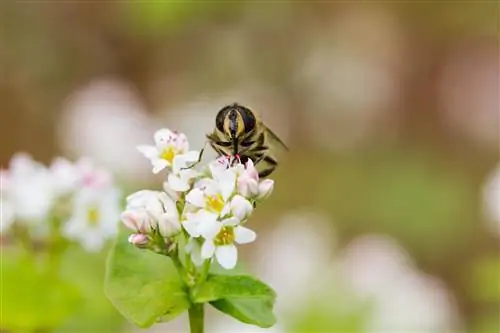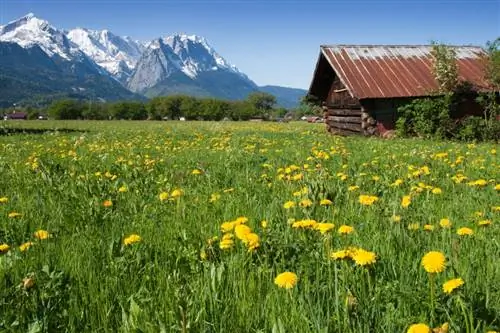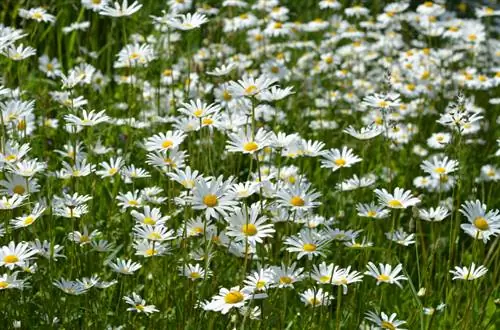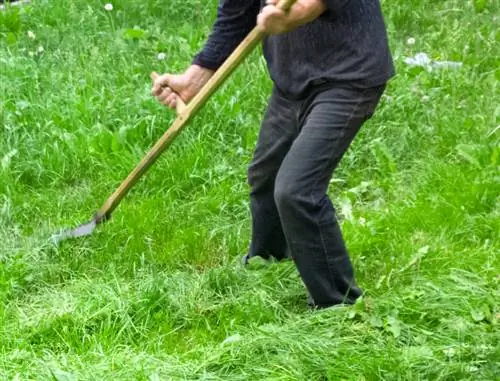- Author admin leonars@hobbygardeners.com.
- Public 2023-12-16 16:46.
- Last modified 2025-01-23 11:22.
Buckwheat is not only nutritionally valuable for humans, but also for nature and the agricultural landscape and its diversity. There's a lot of potential in him. Below you will find out why growing buckwheat is worthwhile.
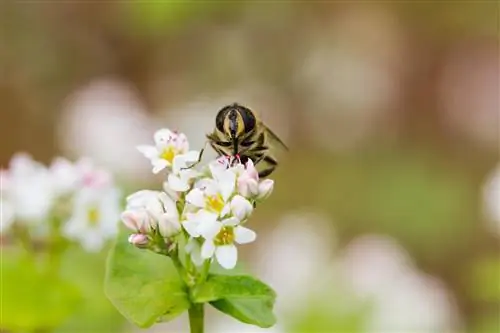
Does buckwheat contribute to biodiversity?
Buckwheat contributes to biodiversity as it provides theinsect worldin summer with plenty ofnectarandpollenoffers, while most other cultivated and wild plants have already faded. In addition, buckwheat is extremely undemanding to grow and has little impact on the environment.
Is buckwheat grown in Germany?
Buckwheathas beengrown in Germany for several years, with the cultivation of this plant taking up an ever-increasing share. This knotweed plant is currently found mainly in Brandenburg and Mecklenburg-Western Pomerania. But he althy pseudograins are also on the rise elsewhere.
What types of buckwheat are most commonly grown?
There are two types of buckwheat that are mostly grown: thereal buckwheatand theTatar buckwheat The real one is particularly convincing Buckwheat, as it blooms more profusely and promises a richer harvest. It includes numerous varieties that have been bred to meet different requirements.
Does buckwheat have a positive effect on biodiversity?
The real buckwheat has apositive impact on biodiversity. The reason is its flowering period from July to September and its rich supply of nectar, which attracts insects and keeps them alive. Honey bees, wild bees, butterflies, beetles and even grasshoppers find it difficult to resist the buckwheat and its flowers and fly to the buckwheat field. This in turn has an inviting effect on birds, for example, who satisfy their hunger through the insects.
Is the value of buckwheat for biodiversity being researched?
The value of buckwheat for biodiversity is currently being researched at the University of Hohenheim near StuttgartFriedrich Longin is checking, among other things, which varieties of buckwheat are particularly beneficial in order to increase their use to integrate more into the agricultural economy.
What benefits does buckwheat have for nature?
Buckwheat is able toVegetation gaps in summerclose This is thanks to its long-lasting flowering, which lasts from July to September. At this time, the nectar and pollen supply in nature is rather sparse and insects are happy about buckwheat.
Why is it worth growing buckwheat?
Growing buckwheat is worthwhile formany reasons. Below are some of its advantages:
- short growing season (90 to 110 days)
- doesn't need fertilizer
- prevents soil erosion
- suppresses weeds
- hardly susceptible to pests
- no pesticides necessary
Tip
Use buckwheat as a second crop
Thanks to its short growing season from July to September, buckwheat can be used wonderfully as a second crop. Beforehand, you can, for example, grow early potatoes. After the buckwheat has been harvested, a winter crop can be planted.

